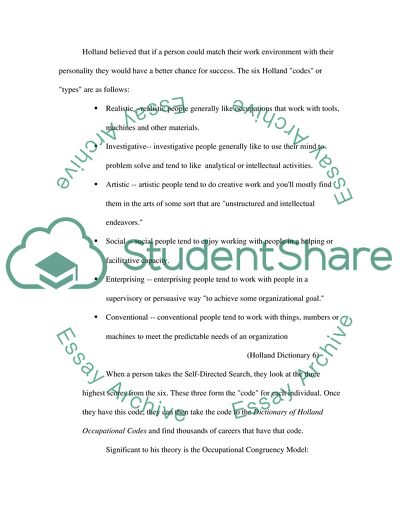Cite this document
(“John L. Holland and the Self-Directed Search Essay”, n.d.)
John L. Holland and the Self-Directed Search Essay. Retrieved from https://studentshare.org/psychology/1545160-major-theory-topiccase-study
John L. Holland and the Self-Directed Search Essay. Retrieved from https://studentshare.org/psychology/1545160-major-theory-topiccase-study
(John L. Holland and the Self-Directed Search Essay)
John L. Holland and the Self-Directed Search Essay. https://studentshare.org/psychology/1545160-major-theory-topiccase-study.
John L. Holland and the Self-Directed Search Essay. https://studentshare.org/psychology/1545160-major-theory-topiccase-study.
“John L. Holland and the Self-Directed Search Essay”, n.d. https://studentshare.org/psychology/1545160-major-theory-topiccase-study.


